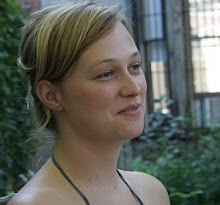I was very interested to read the new briefing produced by The Center on Philanthropy at Indiana University, funded by Bank of America. The research conducted aims to better understand the effects of our current economy on charitable giving. The subject pool was determined by household income-- over $200,000, and from there was randomized throughout the U.S. The highlight finding from my point of view was that, of all the options given to the question "why do you stop giving to a cause or organization?", 60% of respondents claimed that they no longer felt connected to the organization. This is very different from not believing in the mission of the organization or a change in tax policy. This has to do with a very essential human need-- a need for emotional connection.
Why is connection to an organization so important for the philanthropic community when determining how it will allocate its funds? Is it because people are living disconnected lives in most other ways? I believe that the axial shift I referenced in my first posting, will require us to learn how to live more attuned and integrated lives, in order to heal and repair the world and ourselves. Our values need to live and breathe through each decision we make. People have to disconnect to avoid what psychologists call cognitive dissonance; "the theory that we act to reduce the discomfort (dissonance) we feel when two of our thoughts are inconsistent. For example, when our awareness of our attitudes and of our actions clash, we can reduce the resulting dissonance by changing our attitudes.Myers, David Exploring Psychology, 7th Ed." I know many people for whom work is a necessary evil-- it's a paycheck, it's health insurance. But it is NOT so many things-- it is not an extension of ourselves at our best-- it is not the joy of our daily routine. In some cases it is even more extreme than that-- look at Bernard Madoff or Elliot Spitzer.
I worry about the people, specifically young people who had their whole lives "figured out." They were on the linear path from an elite high school to an Ivy League undergraduate education with a B.A. in business. They went on to work for a few years at an accounting firm and are now in business school for that golden M.B.A. And now the economy is falling apart and the 100-hour-weeks don't promise that mid-six-figure salary with the bonus to ensure that life of luxury that justifies working so hard for the company's bottom line. Where do these people go? How do companies deal with this reality? How do our young investment bankers and traders deal with this upset-- this major source of cognitive dissonance? Do they have the values, the essential human resources to ride out this storm? I'm pretty sure that business school didn't cover this in the curriculum. And when the payoff has been measured in monetary terms and there is no payoff any more, what on earth do these people do?
You, dear reader, can help figure this one out. I am interested in what you think. Comment away!
Subscribe to:
Post Comments (Atom)




No comments:
Post a Comment